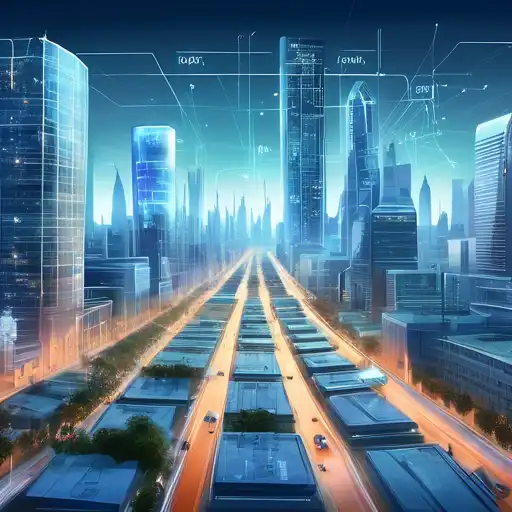Introduction to IoT and Smart Cities
The Internet of Things (IoT) is revolutionizing how cities operate, making them smarter, more efficient, and more responsive to the needs of their inhabitants. By connecting devices, vehicles, and infrastructure to the internet, cities are able to collect and analyze data like never before, leading to improved services and quality of life for residents.
Key Areas Where IoT is Making an Impact
From traffic management to waste disposal, IoT technologies are being deployed across various sectors to enhance urban living. Below are some of the key areas where IoT is making a significant difference:
- Traffic and Transportation: IoT-enabled sensors and cameras monitor traffic flow in real-time, reducing congestion and improving public transportation systems.
- Energy Management: Smart grids and meters allow for more efficient energy use, reducing costs and environmental impact.
- Public Safety: Surveillance systems and emergency response tools powered by IoT help keep cities safer.
- Waste Management: Smart bins and collection systems optimize waste disposal routes and schedules.
Benefits of IoT in Urban Development
The integration of IoT into city infrastructure offers numerous benefits, including:
- Enhanced efficiency and reduced operational costs.
- Improved sustainability through better resource management.
- Increased safety and security for residents.
- Greater citizen engagement and satisfaction.
Challenges and Considerations
Despite its potential, the adoption of IoT in smart cities faces several challenges, such as privacy concerns, the need for significant investment, and the complexity of integrating new technologies with existing infrastructure. Addressing these issues is crucial for the successful implementation of IoT solutions.
Future Prospects
As technology continues to evolve, the possibilities for IoT in smart cities are boundless. Innovations in AI and machine learning, coupled with advancements in IoT devices, promise to further transform urban environments, making them more livable, sustainable, and efficient.
For more insights into how technology is shaping our world, explore our articles on technology trends and sustainable urban development.
Conclusion
The role of IoT in making cities smarter cannot be overstated. By harnessing the power of connected devices and data analytics, urban areas are becoming more responsive to the needs of their populations, paving the way for a future where technology and community go hand in hand.
